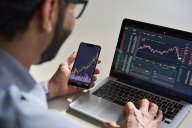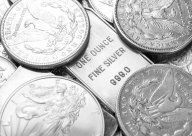Featured articles

Why Michael Burry just sold all his stocks
Michael Burry just sold over $70 million in stock, liquidating his entire portfolio except for one stock, doubling down on a company that other investors are fleeing in droves.
15:28, 18 July 2025

Euro forecast: Third-party price target
Read our EUR/USD forex rate forecast for 2025 and beyond, with insights from third-party analysts and market experts
12:06, 4 July 2025

Crypto CFDs: Popular cryptocurrencies for trading
Discover which cryptocurrencies are trending for CFD trading in 2025 – from bitcoin to newly listed coins like SUI and PEPE.
10:46, 31 July 2025

Trading Tesla after its earnings miss
Q2 earnings and revenue miss sees shares drop in extended trading as CEO Musk warns of the possibility of a “few rough quarters”
06:21, 24 July 2025

Why Michael Burry just sold all his stocks
Michael Burry just sold over $70 million in stock, liquidating his entire portfolio except for one stock, doubling down on a company that other investors are fleeing in droves.
15:28, 18 July 2025

Nasdaq 100: Trading US CPI
Futures up on Nvidia’s China sales resumption of AI chips, but the next test is US pricing data.
06:29, 15 July 2025

Tesla stock forecast: third-party Tesla (TSLA) price target
Discover the Tesla (TSLA) stock price forecast, with predictions, price drivers, and Tesla CFDs trading strategies on Capital.com
12:42, 10 July 2025

Trading the Nasdaq 100 ahead of Jackson Hole
Rotation out of tech for two sessions in a row hits the tech-heavy index and a couple key short-term technical indicators, but both clients and CoT speculators remain majority buy.
07:20, 21 August 2025

Trading the Dow 30 after its Recent Record High
Futures take a small dip and CoT speculators remain net sell, but there’s no denying what has been more positive technical bias.
08:53, 18 August 2025

Trading the Russell 2000 as Rate Cut Likelihoods Rise
We’re at levels unseen since December of last year as the small-cap index outperforms, with technicals turning bullish and price action moving in favor of majority client sentiment.
06:27, 14 August 2025

Trading the Nasdaq 100 as Tariffs Take Effect
Not far off recovering from last Thursday’s losses buoyed by big gains from a few of Big Tech, and in sentiment still a story of majority buy bias.
06:35, 7 August 2025

Silver price forecast: Third-party predictions 2025-2030
What’s next for silver price expectations? Here’s a roundup of the silver price forecast from a range of third parties, with analyst predictions for 2025 and beyond.
15:09, 18 August 2025

Trading gold ahead of US CPI
Traders await updates on bullion tariffs after “misinformation” claim, but that isn’t the only event this week on the fundamental front that can move the needle.
08:41, 11 August 2025

Why platinum just broke a decade long resistance
A line can be drawn on platinum's price chart starting in 2008, capturing one, two, three, four reactions over 17 consecutive years.
20:04, 22 July 2025

Trading Gold’s short-term bull channel
Denial of Fed Chair Powell’s removal has meant a pullback off the highs, but what will it take to get gold prices to break out of its short-term bull channel?
07:23, 17 July 2025

Australian dollar forecast: Third-party price target
What’s next for AUD/USD? Here’s our round-up of third-party Australian dollar forecasts, with analysts’ insights, price history, and forex rate drivers for CFD traders.
19:56, 18 August 2025

US dollar forecast: Third-party data round-up
US monetary policy and global headwinds continue to sway major forex pairs – leaving many asking: what’s next for the US dollar forecast? Dive into our roundup of third-party insights and expert price predictions for 2025 and beyond.
15:44, 18 August 2025

Forex CFDs: Understanding currency forwards vs spot markets
Spot or forward? These two forex markets behave differently, and now you can trade both with us as forex CFDs. Here’s how they work, and what sets them apart.
14:48, 31 July 2025

An unprecedented signal just triggered on the US Dollar
The US dollar just collapsed against the Taiwanese new dollar, with the pairing falling 8% in just a few days, crashing below this key support line and reaching its lowest level in over a year.
14:17, 17 July 2025

PENGU price prediction 2025: Third-party price target
Launched in 2024, PENGU is the cryptocurrency of Pudgy Penguins, a collection of cartoon penguin NFTs first launched in 2021.
24 hours ago

PEPE price prediction 2025-2050: Third-party insights
Read our PEPE price prediction for 2025 and beyond, with insights from third-party analysts and market experts.
13:58, 22 August 2025

Crypto CFDs: Popular cryptocurrencies for trading
Discover which cryptocurrencies are trending for CFD trading in 2025 – from bitcoin to newly listed coins like SUI and PEPE.
10:46, 31 July 2025

Ripple price prediction: Third-party price target
Ripple, launched in 2012 with the XRP Ledger, aims to make cross-border payments faster and cheaper using its native token, XRP. Backed by financial institutions and a strong market presence, it remains a major crypto asset by market cap.
14:34, 30 July 2025
